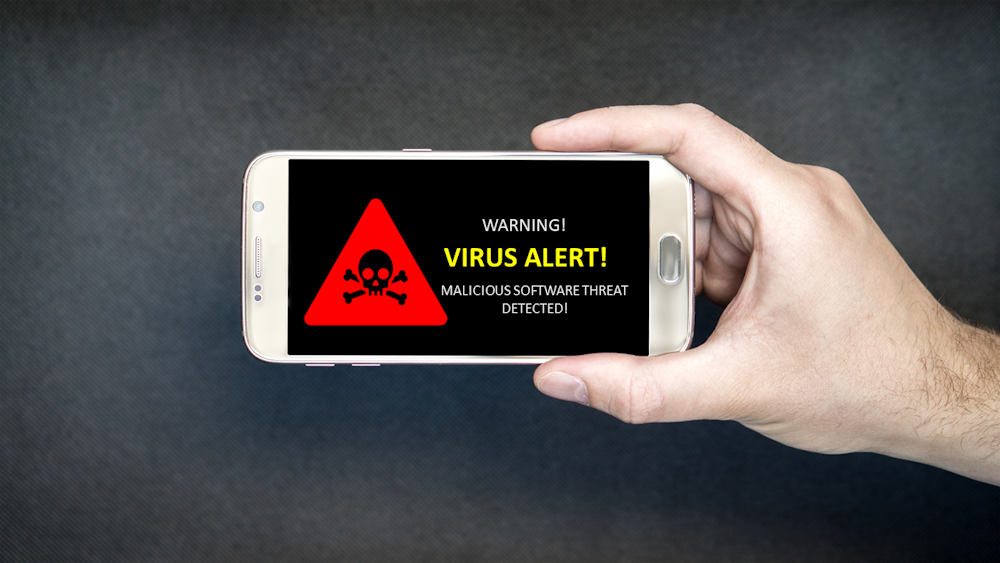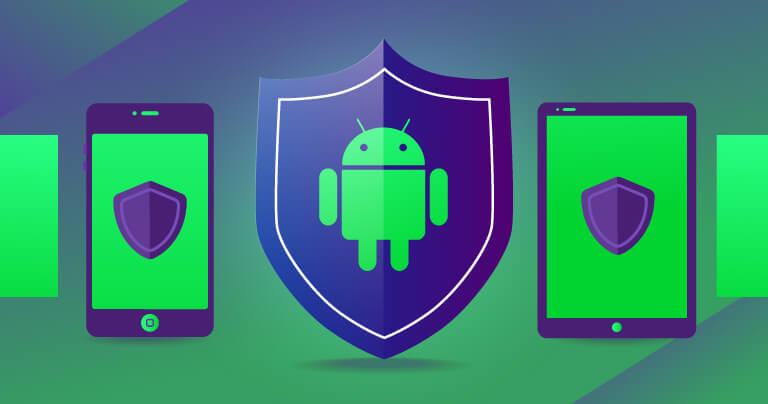Ensuring Uncompromised Privacy and Security Against Modern Threats

In an era where smartphones have become an indispensable part of our lives, the concerns surrounding privacy and security are more significant than ever. From personal communication to sensitive financial transactions, our smartphones hold a treasure trove of personal information. This comprehensive guide aims to provide you with insights into how to protect your phone from spying attempts, recognize signs of a potential mobile phone virus, and adopt effective precautions to ensure the security of your device and data. Security and privacy are paramount in this digital age, and understanding how to safeguard your smartphone is of utmost importance.
Part 1: Preventing Phone Spying
Our smartphones are miniature computers that are susceptible to various forms of digital surveillance. Taking steps to prevent phone spying is essential for maintaining your privacy and protecting your sensitive information.

- App Permissions and Controls
One of the primary ways that apps can gain access to your personal information is through the permissions they request during installation. To prevent excessive data sharing:
- Review app permissions carefully and grant access only to necessary features.
- Periodically audit and revoke permissions for apps that you no longer use or trust.
- Software Updates for Security
Both operating system updates and app updates often include security patches that address vulnerabilities. Keeping your software up to date is crucial for maintaining a secure device:
- Enable automatic updates to ensure you’re always running the latest version.
- Manufacturers release security updates to protect against new threats, so regular updates are essential.
- Network Security and Encryption
Your smartphone frequently connects to Wi-Fi networks, which can be vulnerable points of entry for hackers. Ensure network security:
- Use secure Wi-Fi networks with WPA3 encryption whenever possible.
- Consider using a Virtual Private Network (VPN) to encrypt your internet traffic when using public Wi-Fi.
- Lock Screen Security
Your lock screen acts as the first line of defence against unauthorized access to your device. Optimize your lock screen security:
- Set a strong, unique password, PIN, or biometric authentication (such as fingerprint or facial recognition).
- Avoid easily guessable patterns or passwords like “1234” or your birthdate.
- Source of Apps Matters
Download apps exclusively from trusted sources such as the Google Play Store or the Apple App Store:
- Apps on these platforms undergo scrutiny and are less likely to contain malware.
- Be cautious of third-party app stores or sources, as they can expose you to malicious software.
Part 2: Recognizing Mobile Phone Viruses

Virus attacks on smartphones can compromise your data and privacy. Recognizing the signs of a potential virus can help you take swift action.
- Battery Drain and Performance Issues
The resource-intensive nature of viruses can lead to noticeable changes in your device’s performance:
- An unexplained battery drain can indicate a virus running background processes.
- Slow performance, app crashes, and delays in response could be signs of a malware infection.
- Data Usage Anomalies
Viruses often communicate with external sources, resulting in increased data consumption:
- Monitor your data usage regularly to detect sudden spikes.
- High data usage without a corresponding increase in your app activity could indicate malware.
- Pop-up Ads and Notifications
Adware and certain types of malware can flood your device with unwanted pop-ups:
- Persistent pop-up ads, even outside of apps, are signs of potential malware.
- Avoid clicking on pop-ups, as they could lead to malicious websites or installations.
- Unwanted Apps and Icons
If you notice unfamiliar apps or icons on your home screen or in your app drawer, be cautious:
- Viruses may install additional apps without your consent.
- Regularly review your installed apps and remove any that you don’t recognize.
Part 3: Essential Precautions and Safety Measures

Taking proactive measures to safeguard your device against threats is crucial. Implement the following precautions to enhance your smartphone security.
- Antivirus Protection
Installing a reputable antivirus app can provide an additional layer of defence against viruses and malware:
- Regularly scan your device for potential threats.
- Choose an antivirus app with a strong track record and positive user reviews.
- Two-Factor Authentication (2FA)
Enabling 2FA adds an extra layer of security to your online accounts:
- Even if a hacker gains access to your password, they’ll need a second form of authentication to log in.
- Enable 2FA for accounts that offer this option, such as email, social media, and banking accounts.
- Frequent Backups for Data Recovery
Regularly backing up your phone’s data ensures that your important information is safe:
- Use both cloud-based and offline backup methods to secure your data.
- In case of a virus attack or other data loss event, you can restore your data from a backup.
- Vigilance with Suspicious Links and Messages
Phishing attempts often come in the form of deceptive links and messages:
- Be cautious when clicking on links in emails, messages, or social media posts, especially if they’re unsolicited.
- Double-check the sender’s identity before interacting with any content.
- App Reviews and Ratings
Before downloading any app, review its ratings and user feedback:
- Apps with low ratings or negative reviews might have privacy or security issues.
- Be wary of apps that promise unrealistic features or benefits.
- Regular Privacy Settings Review
Periodically review and adjust your app-specific privacy settings:
- Some apps may update their privacy permissions after software updates, so stay informed.
- Revoke unnecessary permissions for apps that no longer require access to certain features.
- Secure Communication through Encrypted Apps
Choose messaging apps that offer end-to-end encryption:
- End-to-end encryption ensures that only the sender and recipient can read the messages.
- Examples of such apps include Signal, WhatsApp, and Telegram.
Part 4: Advanced Security Measures

For those seeking additional layers of protection, consider adopting these advanced security practices.
- App Locks for Enhanced Privacy
Protect sensitive apps and data from unauthorized access by using app lock features:
- Lock apps containing personal information, financial data, or confidential files.
- Use a strong password or biometric authentication to unlock these apps.
- Device Encryption for Data Security
Encrypt your device’s data to prevent unauthorized access even if your phone is lost or stolen:
- Encryption ensures that your data is only accessible with your password or PIN.
- Check your device settings to enable encryption for enhanced security.
- Remote Wiping as a Last Resort
Enable remote wiping functionality to erase your device’s data in case of theft or loss:
- Remote wipe ensures that your personal data remains confidential, even if the device is no longer in your possession.
- Remote wipes can often be triggered through your device’s manufacturer account or security software.
- Avoid Rooting or Jailbreaking
Resist the temptation to root (Android) or jailbreak (iOS) your device for added features:
- Rooting or jailbreaking can expose your device to security vulnerabilities and malware.
- Stick to the manufacturer’s intended software and app ecosystem for better security.
- Regular App Auditing and Removal
Frequently review the apps installed on your device:
- Remove apps that you no longer use to minimize potential security risks.
- Limit the number of installed apps to reduce the attack surface for potential threats.
Part 5: Cultivating Digital Hygiene

Maintaining good digital hygiene practices is vital to long-term smartphone security.
- Continual Learning and Awareness
Stay informed about the latest security threats and best practices:
- Follow reputable cybersecurity sources to stay updated on emerging threats.
- Educate yourself and your family members about safe online behaviour.
- Secure Storage Solutions
Use secure and encrypted storage solutions for sensitive files and documents:
- Consider using password-protected cloud storage services with encryption features.
- Protect important files with strong passwords and encryption to prevent unauthorized access.
- Be Cautious of Rogue Apps
Exercise caution when downloading apps that promise extraordinary features:
- Research the app and its developer before installation.
- Stick to well-known and established app developers to reduce the risk of malware.
- Secure Payment Methods
When conducting transactions on your smartphone, prioritize secure payment methods:
- Use reputable payment apps or services with a history of secure transactions.
- Be cautious of sharing credit card information through unfamiliar apps or websites.
In the ever-evolving landscape of smartphone technology, maintaining your privacy and security requires vigilance and proactive measures. By implementing the strategies outlined in this comprehensive guide, you’ll be better equipped to prevent phone spying, recognize signs of mobile phone viruses, and take the necessary precautions to safeguard your digital life. Whether you’re communicating with loved ones, managing your finances, or simply browsing the internet, your smartphone remains a powerful tool that can be used with confidence when armed with the knowledge to protect it.
Write with us✍?
TeamUgtWorld warmly welcomes everyone! If you have something on your mind that you’d like to write about, we invite you to publish your content on our platform @Ugtworld. To learn more, please click on the link provided below.


